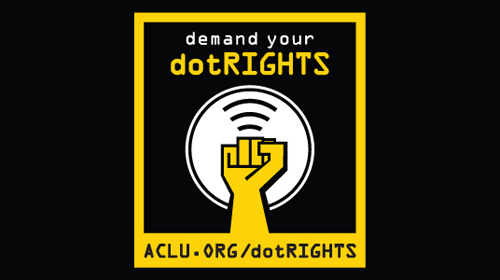
The └¤░─├┼┐¬Ż▒Żß╣ű has stated concern again and again about the new model of internet advertising which relies heavily on tracking users as they move from website to website and creates a detailed profile about their viewing habits. Our suggested solution has been a Do Not Track (DNT) mechanism, one that would allow users to opt out and convey that they donÔÇÖt want to be tracked. But what does it mean not to track someone online?
This week in Washington D.C., an and government regulators are gathering in one of the final stages to resolving that key question. The ÔÇťTracking Protection Working Group of the World Wide Web ConsortiumÔÇŁ (W3C) is an international standards setting body made up off all the different stakeholders who make the Internet run. For the next three days they will hold face to face meetings and attempt to hammer out the difficult technical issues around DNT. For example, how should companies handle fraudulent practices that are revealed by tracking? What about web analytics?
Resolving these questions is crucial to the success of DNT. While the of the idea, some advertisers have attempted to stop short of true Do Not Track. While paying lip service to the idea (and the W3C process), they have attempted to substitute a different concept, that of Do Not Target. Under the advertisersÔÇÖ model consumers would simply not receive targeted advertising based on profiles, however the creation of the profiles would still go on! Other companies like Google have only a DNT feature after long arguing that it was impractical or unworkable.
Attempts to confuse consumers or plead technical impossibility threaten to blunt the enormous momentum DNT has gathered over the last year. An effort that started as something pushed by a few consumer groups now has a realistic chance to succeed. Federal Trade Commission (FTC) Chairman Jon Leibowitz, actually recently that "consumers will have an easy to use and effective Do Not Track option by the end of the year."
Equally important, a consistent standard would create clear accountability across the web. A workable DNT standard crafted by W3C will allow consumers to push for guarantees from companies that they will abide by a true DNT and identify those that donÔÇÖt. These guarantees will be enforceable by the FTC and regulators around the world. If the W3C falters, the Chairman of the Senate Commerce Committee, Senator John Rockefeller, has already filed legislation to require creation of a DNT.
As the W3C moves to finalize standards by this June, weÔÇÖll keep you informed both about positive steps and any roadblocks that the process encounters so you can help us encourage companies, advertisers and browser manufacturers to craft an Internet that protects our privacy and civil liberties. If you want to urge Congress to continue to make online targeting a focus, please click here, and to stay informed on our ÔÇťDemand Your dotRightsÔÇŁ digital privacy campaign, follow us on and .
Learn more about online privacy: Sign up for breaking news alerts, , and .

